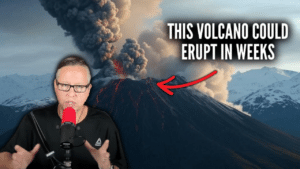As the world absorbs the prospect of an escalating conflict in the Middle East, the potential economic fallout is sowing increasing alarm. The worst fears center on a broadly debilitating development: a shock to the global oil supply.
Such a result, actively contemplated in world capitals, could yield surging prices for gasoline, fuel and other products made with petroleum like plastics, chemicals and fertilizer.
It could discourage investment, hiring, and business expansion, threatening many economies — particularly in Europe — with the risk of recession. The effects would be potent in nations that depend on imported oil, especially poor countries in Africa.
The possibility of this calamitous outcome has come into focus in recent days as Israel plots its response to the barrage of missiles that Iran unleashed last week.
Some scenarios are seen as highly unlikely, yet still conceivable: An Israeli strike on Iranian oil installations might prompt Iran to target refineries in Saudi Arabia or the United Arab Emirates, both major oil producers.
Iranian-supported Houthi rebels claimed credit for an attack on Saudi oil installations in 2019. The Trump administration subsequently pinned the blame on Iranian forces.
As it has done before, Iran might also threaten the passage of tankers through the Strait of Hormuz, the critical waterway that is the conduit for oil produced in the Persian Gulf, the source of nearly one-third of the world’s oil production. Such a move could entail conflict with American naval ships stationed in the region.
That, too, is currently considered to be improbable. But the upheaval in the region in recent months has pushed out the parameters of possibility, rendering imaginable scenarios that were once dismissed as extreme.
As Israel plots its next move, it has other targets besides Iranian oil installations. Iran would have reason for caution in crafting its own retaliation. Broadening the war to its Persian Gulf neighbors would invite a punishing response that could push Iran’s own economy — already bleak — to the brink of collapse.
Yet the risks of a broader conflict have heightened in recent days as Israel has expanded its military campaign against its enemies to southern Lebanon, where it has targeted the Iranian-backed militant group Hezbollah. Iran’s strikes on Israel have raised the stakes further.
Visions of an intensifying war in the Middle East have added an enormous variable to a global economy already laced with unpredictable forces, from Russia’s war in Ukraine, to the trade conflict between the world’s two largest economies — the United States and China — and the ever-present risk of provocation from North Korea.
“This is an extraordinarily precarious global situation,” said Kenneth S. Rogoff, a former chief economist at the International Monetary Fund who is now a professor at Harvard University.
“The world is probably the most unstable that it’s been since the Cold War. That’s not even mildly an overstatement. It could get worse in a hurry. That would certainly have a big impact on the global economy.”
Every conflict in the Middle East holds the potential to jeopardize the world’s access to oil. This one appears no different.
Last Thursday, after President Biden said his administration was “discussing” the possibility of supporting an Israeli strike on Iran’s oil facilities, oil prices spiked by more than 4 percent. The price of Brent crude, the international benchmark, breached $77 a barrel, up from about $71 a barrel before Iran unleashed missiles toward Israel.
The following day, Mr. Biden sought to alleviate concerns, telling reporters that the Israelis “should be thinking about other alternatives than striking oil fields.”
Experts assert that Israel’s efforts to limit the threat from Iran would be better served by targeting its military capabilities, perhaps firing on its elite Quds Force, which is widely unpopular within Iranian society.
Even if Israel does attack Iran’s oil production, the ramifications of that alone would be minimal for the global economy, analysts say. Iran is a major oil producer, pumping out nearly 4 millions barrels a day, or about 4 percent of the global total, according to the U.S. Energy Information Administration.








